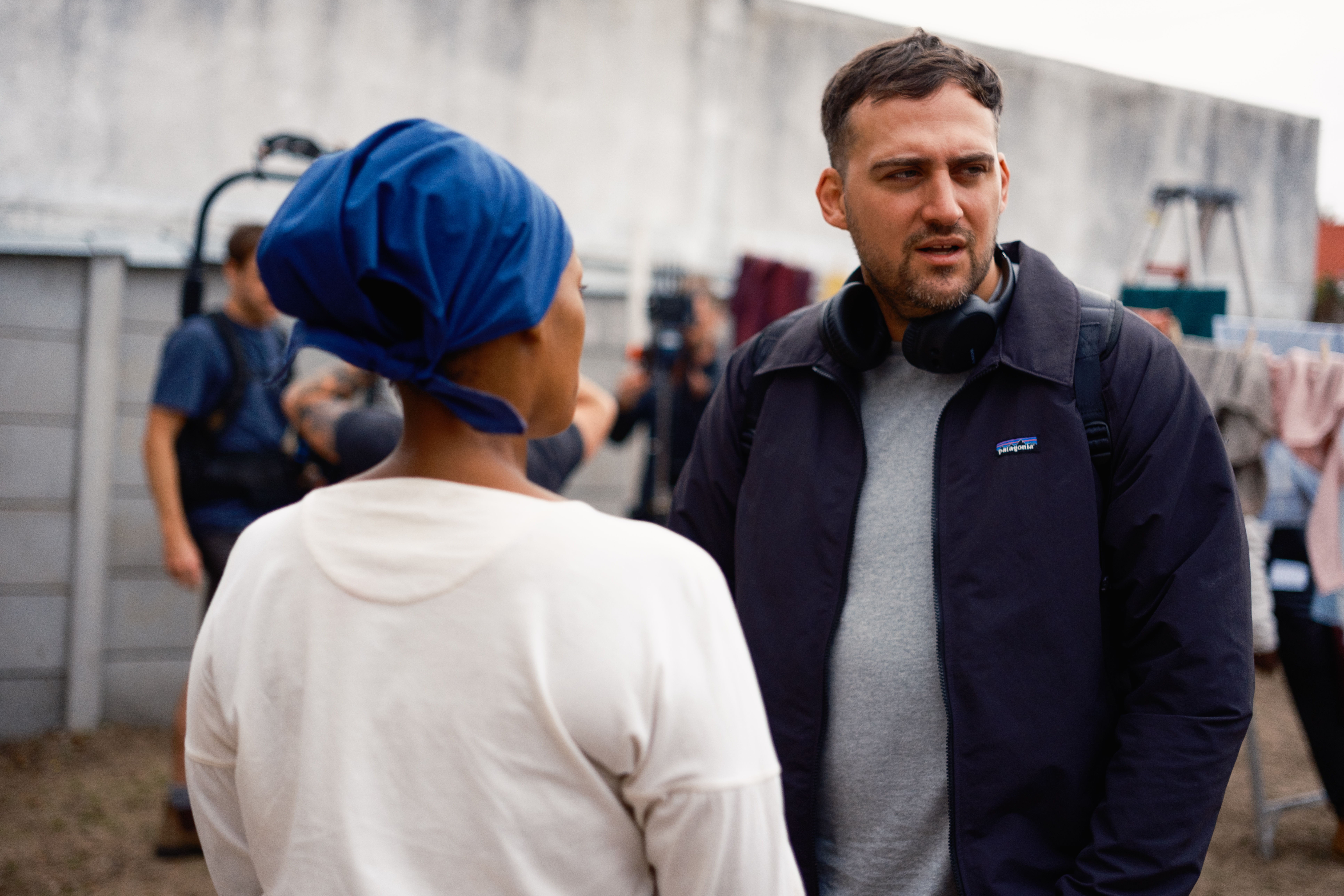WHAT WE’RE WATCHING
‘Boetie Boer’ attempts to dive deeply into the terrifying mind of a monster

A new South African true crime series follows the case of Stewart Wilkin, a South African serial killer whose hellish crimes in the 90s were overshadowed by the country’s transition to democracy
And you thought Devilsdorp was disturbing … Stewart ‘Boetie Boer’ Wilken is a South African serial killer who was active in Port Elizabeth (now Gqeberha) during the 1990s. In February 1998, he was convicted on seven counts of murder (and two of sodomy, a few weeks before gay sex was legalised in South Africa) but admitted to numerous more murders in his written confession.
This Showmax Original true-crime series is the most frightening to date. Director Jasyn Howes interviews the detectives and forensic psychoanalysts involved in Wilkin’s capture, one of the victim’s family, and most alarmingly, the series takes us back to 1990 recreating Wilkin’s killing spree based on a recorded interview with the murderer himself from his prison cell.
The interview took place in 2006 with Dr Gérard Labuschagne, the former section head of the Investigative Psychology Section of the South African Police Services, who also features in the series.
“Labuschagne gave us his recording of just over three hours of Wilken sharing, in his own words, everything he’d done,” says Howes.
“Wilken had been in prison for eight years at the time of that interview, and was already sentenced to life behind bars, so he had no obvious reason to hide anything.”
Trigger warning
It should go without saying that a documentary with re-enacted crimes and first-person accounts of a ruthless serial killer will disturb some people, but best to say it anyway: things get evil very quickly — this is not an easy watch.
Don’t think because you make it through the first episode without nightmares that you’ll handle the rest. It only gets more intense as Wilkins reveals how his fiendish crimes escalated. Murder, rape paedophilia, necrophilia, bestiality, suicide, cannibalism, incest — you name it, this story has it all.
“Even if you are over 18 and a fan of true-crime documentaries, we strongly advise viewer discretion,” says Allan Sperling, executive head of content at Showmax.

Jasyn Howes on the set of “Boetie Boer: Inside the Mind of a Monster”. (Photo: Courtesy of Showmax)
How not to glorify a killer
There have been a lot of conversations recently about the dangers of glamorising true crime in pop culture. When production houses leverage audiences’ fascination (some would say morbid fascination) with murder to profit off of real-life horrors, this can re-traumatise victims and potentially even inspire copycat criminals.
In 2022, Netflix came under fire for creating a series called Monster: The Jeffrey Dahmer Story, fictionalising the crimes of a real serial killer without consulting the families of the victims he brutally murdered. Even crime documentaries may hinder the pursuit of justice in some cases. Howes has made a concerted effort to avoid sensationalism and ethical pitfalls. Each episode is bookended by disclaimers indicating his awareness of these debates and stating his position on them. Episodes start with the text:
“The documentary aims to shed light on the chilling complexity of human actions and the pursuit of justice and not to glorify crime”, and end with “Reasonable efforts were made to contact the families of the victims of Stewart Wilken’s crimes”.

Raven Swart as Stewart Wilken in “Boetie Boer: Inside the Mind of a Monster”. (Photo: Courtesy of Showmax)
‘Inside the mind of a monster’
The subtitle of this series speaks directly to the reason true crime is so popular — many people are extremely curious about how someone can do such terrible things, and what made them that way. These were the questions clinical psychologist Gerard Labuschagne sought to answer when he interviewed Wilken in 2006, to aid in profiling serial killers in general.
This pursuit is plagued by confirmation bias. Because the prospect of understanding criminals better is one of the strong appeals of true crime, serial killer documentaries tend to fixate on causality. If Wilken says it was his being bullied as a child that caused him to become a murderer, the filmmakers seem keen to believe him because it benefits their storytelling. But, as Labuschagne hints in the series, it’s possible that this explanation is just an attempt to justify his unjustifiable actions by attributing them to his sob story.
Clinical psychologist Giada Del Fabbro builds on this theory in the series, quoting psychological theorist, William Fairburn who said “A child would rather be the devil in a world where god existed than have no god whatsoever”. It’s a compelling notion, and yet loads of people are bullied or abused and still don’t grow up to become serial killers, so it’s problematic to latch onto this explanation.
The truth is that we can never truly get “inside the mind of a monster”. That is not to say that we shouldn’t try, for the purpose of spotting people from becoming criminals, but we should be careful about jumping to conclusions about how minds work just because it aligns with the way we understand the world.

Raven Swart in a scene of “Boetie Boer: Inside the Mind of a Monster”. (Photo: Courtesy of Showmax)
Why South Africa’s transition to democracy was an ideal habitat for serial killers
A snippet of Labuschagne’s interview in the series distils what makes serial killers such a frightening idea — it’s not that they’re so different from the rest of us, it’s actually that they’re so similar:
“When you meet these people, you only know them through the context of the crimes they’ve committed, so whenever you do meet them it’s not what you expect. 99.9 per cent of the time they’re doing the same things everyone else is doing.”
Serial killers often take advantage of positions of trust to mask their crimes. Wilken didn’t exactly have the charisma of Ted Bundy, but he was purportedly great with kids and lived in a coloured community, spoke the language and the slang, and had married a woman of colour in a time when that was very unusual for a white Afrikaans man. The mere fact that he was known by the term of endearment “Boetie” is an indication that there was trust in the community which he could exploit.
The 1990s in South Africa was a time of euphoria. The country was focused on Nelson Mandela’s release, its first free elections, the 1995 Rugby World Cup etc. Crime reporter Brett Adkins notes in the series that these fantastic changes somewhat distracted the media from layers of evil that remained.
During apartheid, the police force had been focused on other kinds of crimes, and law enforcement was not trained in serial killing. This meant serial murder could easily be missed because it wasn’t a priority. Norman Simons, the infamous Station Strangler, was only convicted in one case and was released on parole in July 2023.
It was only the urgency of SAPS’s inability to detain Moses Sithole, The ABC Killer, while he was actively murdering that led them to enlist the help of an ex-FBI forensic psychologist to train them to create serial killer profiles. This training was essential in catching Wilken a few years later because he defied some of the usual profile trends.

Raven Swart in a scene from “Boetie Boer: Inside the Mind of a Monster”. (Photo: Courtesy of Showmax)
“Wilken was a highly unusual serial killer,” says Howes, “Unlike most serial killers, he had more than one type of victim: predominantly female sex workers and young boys, usually street children, across multiple races.”
Despite committing at least seven murders, Wilken didn’t receive as much coverage as you’d expect, and this is generally attributed to the country’s focus on its large political changes.
It’s also interesting to discover how the context of South Africa in the 90s shaped Wilken’s descent into criminality personally. Wilken was a fisherman in a period when the industry was highly intertwined with drug trafficking. Drug boats would sell stimulants to fishermen to keep them working through the long hours of a haul — employees would work on trips of a week or two straight and then be paid in a lump sum, meaning that low and middle-income communities would often have drug users return home loaded with cash to feed their habit. This vicious cycle exacerbated Wilken’s psychopathy and aggression and spurred his first murder.
Cringy reenactments
Because there was almost no video or radio archive to draw on, the series leans into recreations to bring the story to life visually. They’re not great, and they get progressively worse. To put distance between the present and these past events, the re-enactments employ an overly theatrical technique — showing the clips in slow motion, muting them, and overlaying dialogue with a reverb effect.
Coupled with a yawn-inducing eerie soundtrack, most of the re-enactment scenes have the dull vibe of a try-hard ghost story, with the exception of Raven Swart’s scenes as a young Wilken, which have an appropriately spine-chilling effect.
The interview sections of the film are less sensational and more gripping. The series explores the typical themes that serial killer shows go for, like early development and the nature of psychopathy, and having all that discussed by familiar types of South African characters brings it closer to home. DM
Boetie Boer is available on Showmax. Episodes air weekly on Wednesdays.
You can contact What We’re Watching via [email protected]




















 Become an Insider
Become an Insider
Comments - Please login in order to comment.